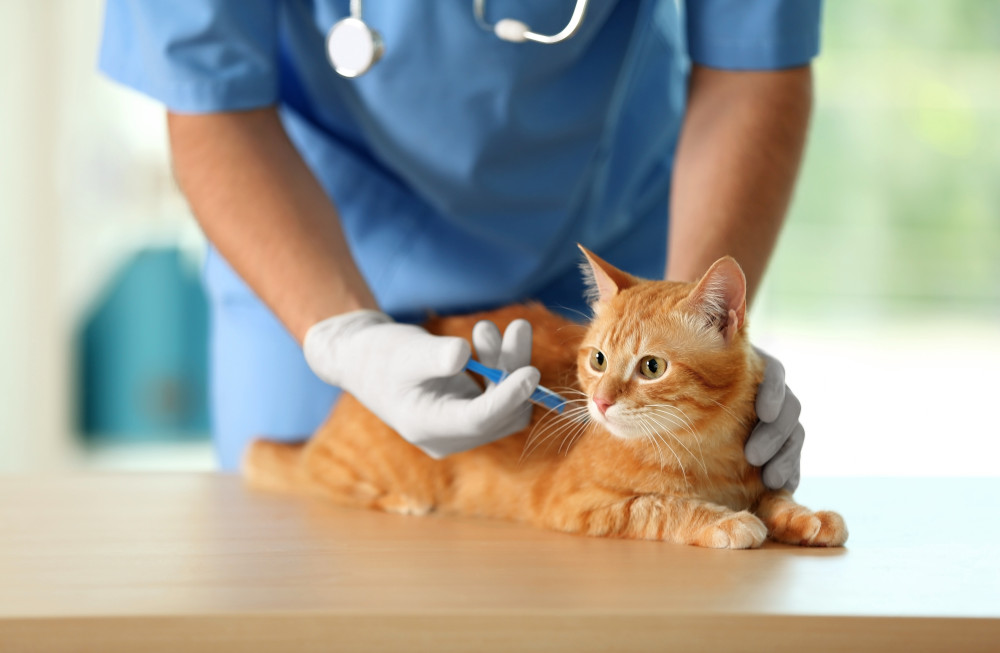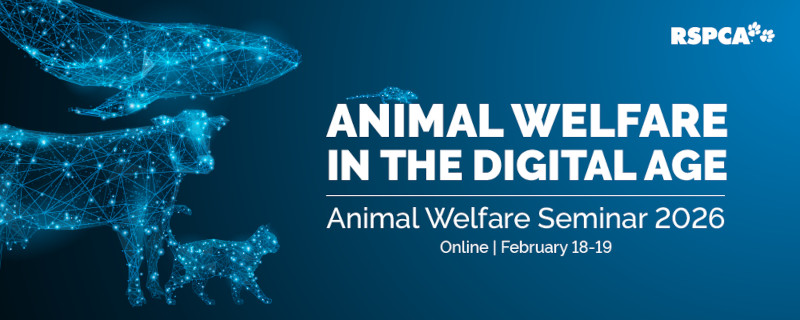
Vaccinations are an important part of caring for your cat. Vaccines provide protection from some diseases such as enteritis (feline panleukopaenia) and cat flu (feline calicivirus and feline herpesvirus). Cats who are vaccinated will either show no signs of illness or are less likely to become seriously ill from specific diseases.
Some general information on vaccinating cats based on the 2024 World Small Animal Veterinary Association vaccination guidelines, AAHA/AAFP Feline Vaccination Guidelines, and advice from the Australian Veterinary Association is given below but should not replace individualised recommendations from your cat’s veterinarian.
Core and non-core vaccinations [1–3]
Core vaccines are those that all unvaccinated cats and cats with an unknown vaccination history should receive to protect them against key diseases including enteritis (feline panleukopaenia [FPV], a parvovirus) and cat flu (feline calicivirus [FCV] and feline herpesvirus [FHV]). This vaccination combination is commonly known in Australia as the F3 vaccination.
Non-core vaccines are those that should only be given to cats in specific risk categories based on an individual risk/benefit assessment [3], lifestyle, and risk of exposure to the infection of the individual cat. Examples of non-core vaccines include those for feline leukaemia virus (FeLV), feline immunodeficiency virus (FIV), and Chlamydia felis.
In areas where FeLV is endemic, the 2024 World Small Animal Veterinary Association (WSAVA) vaccination guidelines highly recommend FeLV vaccinations for young cats under one year of age and for adult cats with outdoor access or that live with other cats that have outdoor access [2]. Please speak to your veterinarian for the most appropriate advice for your individual cat. There may be other non-core vaccines that are available in other countries, that are not available in Australia [1] and these are not listed here.
Kitten vaccinations [1–3]
Current vaccination guidelines recommend that kittens’ first core vaccination is administered from 6-8 weeks of age, then every 3–4 weeks until 16–20 weeks of age [1–3]. Kittens receive maternally-derived antibodies (MDA) from their mother which help protect them from diseases early in life. However, they can also interfere with the efficacy of vaccines until they eventually diminish – how long this takes varies between individuals but can take as long as 20 weeks [2]. By recommending the last kitten vaccine dose to be delivered at 16-20 weeks of age or older, it is expected that these maternally-derived antibodies have diminished to a level low enough where it no longer affects the immunisation process [2].The WSAVA vaccination guidelines recommend that a booster vaccine is then given at 6 months of age to ensure that a protective immune response develops in any cat who may not have responded to the initial vaccination course. It is important to follow this schedule to ensure the vaccines are effective. Alternatively, it may be possible for your veterinarian to perform serological testing to evaluate the status of immune protection and help guide if a booster is required [2].
Please speak to your veterinarian about what vaccinations are right for your kitten or if you are concerned about your kitten’s vaccination being overdue.
Adult cat vaccinations [1–3]
An adult cat who has received a primary vaccination course should have the core vaccination every 1-3 years, depending on the duration of immunity provided by the vaccine your veterinarian uses and the cat’s individual circumstances. Please discuss the appropriate vaccination schedule for your individual cat with your veterinarian.
If you have a cat who is an adult but has not been vaccinated or whose vaccination history or status is unknown, two doses of the core vaccination, 2–4 weeks apart are recommended. After this the cat should receive a vaccination every 1–3 years, based on your veterinarian’s advice.
If you’re introducing another cat with an unknown vaccination history to your household, if possible, ensure vaccination with core vaccines is completed at least a week before bringing the cat home to meet your other animals.
If you are considering breeding your cat, discuss your cat’s vaccination needs with your veterinarian and follow their recommendations before breeding.
Frequency of vaccinations for adult cats and boarding facility requirements [2]
The frequency of feline booster vaccinations varies from 1-3 years depending on the vaccine, the disease, and the risk of disease exposure to the individual cat. In general, it is recommended by expert panels on feline vaccination that cats who stay at a boarding cattery require an annual vaccination schedule (or a booster vaccine before the cat goes into the boarding facility if the cat has not been vaccinated in the preceding year) as this can be a higher risk situation than a normal home environment. Boarding may be stressful for a cat and stress has immunosuppressive effects which may result in increased susceptibility to infection and disease and additionally there can be a higher risk of exposure to infectious disease.
For these reasons, it is still recommended that a cat should have a vaccination within 12 months of entering a boarding facility, and why almost all cat boarding facilities require cats to have received a vaccination booster within 12 months prior to admission to the facility.
It is best to speak to your vet about your cat’s individual needs. Your veterinarian will always do a health check before administering a vaccination to ensure your kitten or cat is healthy to be vaccinated. In addition, this provides an excellent opportunity for your veterinarian to fully examine your cat and discuss any health issues. This allows any health concerns that your cat may have to be addressed as early as possible, giving your cat the best chance possible to be healthy and comfortable. It is important for cats to have an annual (or more frequent) health check with their veterinarian even if they are on a vaccination schedule that means they are not being vaccinated every year.
The core vaccines used in cats are very safe with a very low incidence of adverse reactions; the benefits of protection from serious infectious disease significantly outweigh the risks of developing an adverse reaction. If you have any concerns about adverse vaccine reactions or the health of your cat, it is best to speak to your veterinarian.
References
[1] Australian Veterinary Association (2018) Vaccination of dogs and cats. Accessed 31 Jan 2023
[2] Squires RA, Crawford C, Marcondes M, Whitley N (2024) 2024 guidelines for the vaccination of dogs and cats – compiled by the Vaccination Guidelines Group (VGG) of the World Small Animal Veterinary Association (WSAVA). Journal of Small Animal Practice, 65(5):277–316
[3] Stone AES, Brummet GO, Carozza EM, Kass PH, Petersen EP, Sykes J, Westman ME (2020) 2020 AAHA/AAFP Feline Vaccination Guidelines. J Feline Med Surg 22:813–830

